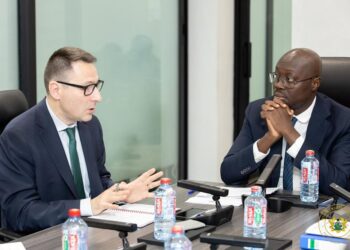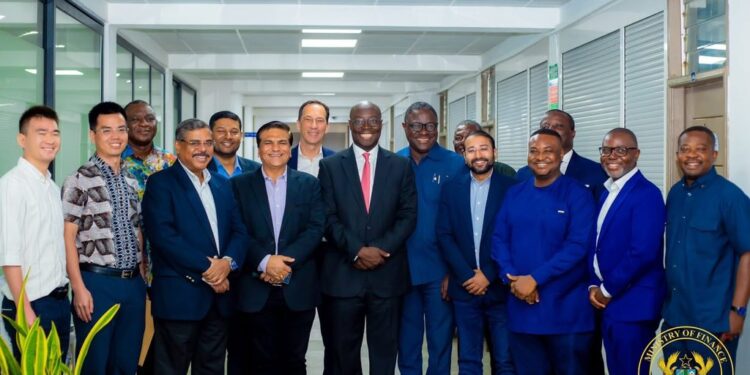According to the Trades Union Congress (TUC), Ghana’s currency, the cedi, has experienced a significant 250 percent depreciation over the past eight years.
This depreciation, combined with over 25 percent inflation, has led to a substantial decline in the living standards of Ghanaian citizens.
Mrs. Phyllis Agyemang, the Eastern Regional Secretary of the TUC, highlighted in a speech by Organised Labour that this decline is primarily attributed to Ghana’s heavy reliance on imported goods.
The prices of these goods are directly affected by fluctuations in foreign currency exchange rates.
“The exchange rate of the cedi is now almost Gh¢14 to one US dollar compared to about GHS 4 in 2016. That means workers who earned a monthly salary of Gh¢1,000 in 2016 took home the equivalent of US$250. Today, GHS 1000 is only US$71.”
Mrs. Phyllis Agyemang
Mrs. Agyemang addressed a gathering of over 800 workers from about 20 organizations in the Eastern Region who gathered in Koforidua to mark Labour Day.
The theme of the celebration was centered around “Election 2024: The Role of Workers and Social Partners in Securing Peaceful Elections for National Development.”
During her address, Mrs. Agyemang highlighted that many workers rely on loans to cover essential expenses such as rent and school fees.
However, she noted that the interest rates on these loans are exorbitant, exceeding 30 percent from formal sources and up to 50 percent from informal sectors.
She expressed concerns about the country’s current economic challenges, stating that the negotiated wages by the TUC for workers over the past two years have significantly lost their value due to the economic distress.
Mrs. Agyemang emphasized that amidst these challenges, the most valuable asset Ghana possesses is peace, which she described as priceless.
She stressed the critical importance of safeguarding this peace from political manipulations and tactics at all costs. Peace, in her view, stands as the foundation for progress and stability in the country.
“At least we are enjoying relative peace compared to other countries in the sub-region. The peace we are enjoying is priceless and so we should never allow partisan politics to destroy it.”
Mrs. Phyllis Agyemang
Mrs. Agyemang appealed to the government to address the issues causing frequent power outages, which have been resulting in damage to people’s property across the country.
She expressed regret that Ghanaians are once again facing ‘dumsor’ (the local term for power outages) after enduring similar challenges in the past.
Swift Solutions Needed for Power Outages
Mrs. Phyllis Agyemang urged the authorities to take swift action to resolve this problem and prevent further disruptions to the lives and livelihoods of citizens.

To address frequent power outages, the government should prioritize investments in energy infrastructure.
This includes upgrading existing power plants and their capacity, diversifying energy sources towards renewables like solar and wind, and improving transmission and distribution networks.
According to the Ministry of Energy, renewable energy currently contributes only 1% to the energy mix. The aim is to achieve 10% renewable in the mix by 2030.
Collaborating with private sector partners can accelerate these efforts and ensure a reliable and sustainable energy supply for businesses and households.
Concerning the high-interest rate people in the informal sector pay on loans, the government can establish and enforce regulations to cap interest rates, especially in the informal lending sector where rates can be excessively high.
By introducing interest rate controls and strengthening financial regulations, the government can protect consumers from predatory lending practices and ensure fair access to credit.
While trade unions like the TUC play a critical role in advocating for workers’ interests and influencing policy discussions, the onus is on the government to enact and implement effective policies that promote economic stability, reduce dependency on imports, stabilize prices, and improve the overall living standards of Ghanaian citizens.





















